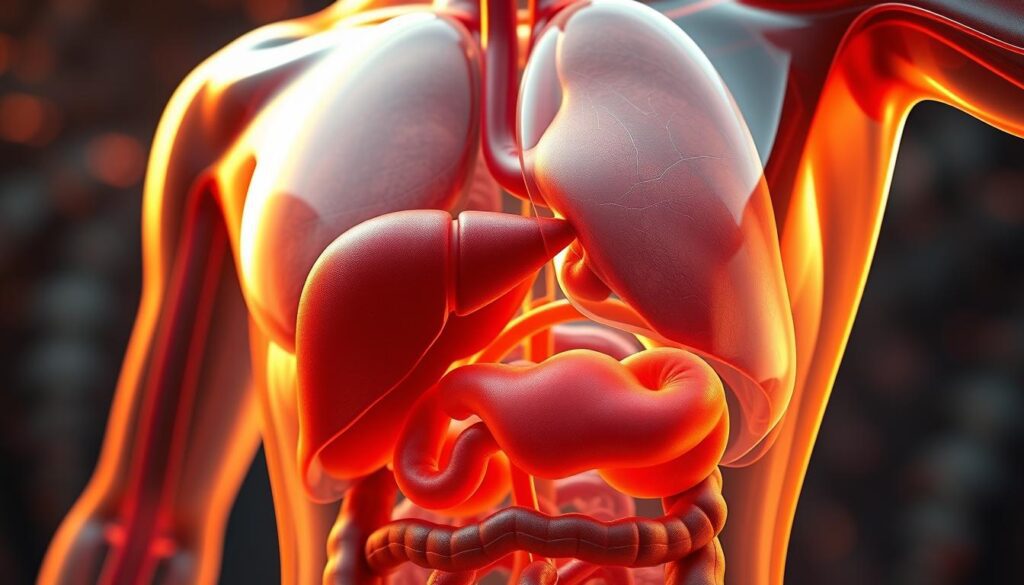Have you ever wondered why some people seem to have endless energy while others struggle to keep up? The answer often lies in their metabolic rate. Metabolism is the process your body uses to convert food into energy. It powers everything from breathing to moving, and even thinking. A higher metabolism means you burn more calories, even at rest, which can help with weight management.
Several factors influence your metabolic rate, including your diet, physical activity, and even how much sleep you get. For example, muscle burns more calories than fat, so building lean muscle through exercise can boost your metabolism. Similarly, eating protein-rich meals can temporarily increase your metabolic rate due to the thermic effect of food.
Small changes in your daily routine can make a big difference. Whether it’s adding more physical activity, prioritizing sleep, or choosing nutrient-dense foods, these habits can help you feel more energized and support your overall health.
Key Takeaways
- Metabolism converts food into energy, affecting your body’s functions.
- A higher metabolic rate helps burn more calories, even at rest.
- Factors like diet, exercise, and sleep influence your metabolism.
- Building muscle through exercise can boost your metabolic rate.
- Protein-rich meals temporarily increase metabolism due to the thermic effect of food.
Understanding Metabolism and Its Role in Health
Your body’s ability to turn food into energy is a key part of staying healthy. This process, known as metabolism, powers everything from breathing to moving. It’s the engine that keeps your body running smoothly, even when you’re at rest.

What is Metabolism?
Metabolism is the process your body uses to convert the nutrients you eat into fuel. It includes two main functions: breaking down food for energy (catabolism) and building up tissues and cells (anabolism). Your metabolic rate determines how efficiently your body performs these tasks.
There’s a difference between total metabolism and basal metabolic rate (BMR). BMR refers to the calories your body burns at rest to maintain basic functions like breathing and circulation. Total metabolism includes BMR plus the calories burned through physical activity and digestion.
Key Factors Influencing Metabolic Rate
Several factors affect your metabolic rate. Age, for example, plays a role. As you get older, your metabolism tends to slow down. Hormones also influence how your body processes energy. Thyroid hormones, in particular, regulate your metabolism.
Muscle mass is another key factor. Muscle burns more calories than fat, even at rest. That’s why strength training can help boost your metabolic rate. Diet matters too. Eating protein-rich meals can temporarily increase your metabolism due to the thermic effect of food.
Understanding these factors can help you make better choices for your health. Whether it’s adding more exercise to your routine or prioritizing sleep, small changes can have a big impact on your metabolism.
How to naturally increase metabolism
Small, consistent changes can make a big impact on your metabolic health. By focusing on evidence-based strategies and simple daily tweaks, you can enhance your metabolic rate and feel more energized. Let’s explore practical ways to support your body’s energy production.
🚀 Special Offer! Don’t Miss Out!

Evidence-Based Lifestyle Strategies
One of the most effective ways to boost metabolism is through high-intensity interval training (HIIT). Studies show that HIIT can elevate your metabolic rate for hours after a workout. This is due to excess post-exercise oxygen consumption (EPOC), which helps burn calories even at rest.
Protein intake also plays a crucial role. Research indicates that consuming 25-30% of your daily calories from protein can increase energy expenditure. This is because protein has a higher thermic effect compared to carbs or fats, meaning your body uses more energy to digest it.
Simple Tweaks for Daily Improvement
Incorporating more physical activity into your day can make a measurable difference. For example, taking a morning walk or adding a protein-rich snack can help maintain your metabolic rate. These small changes, when done consistently, can accumulate over time.
Another simple tweak is prioritizing sleep. A 2016 study found that participants who slept only 4 hours per night experienced a decrease in metabolism. Aim for 7-9 hours of quality sleep to support hormonal balance and overall health.
Finally, strength training is a powerful tool. Building muscle mass not only enhances your metabolic rate but also helps you burn calories more efficiently. Even 20 minutes of resistance training can have a lasting effect.
Nutritional Strategies for Boosting Metabolic Rate
Nutrition plays a pivotal role in shaping your body’s energy efficiency. The foods you choose can either support or hinder your metabolic rate. By focusing on nutrient-dense options and strategic meal planning, you can optimize your body’s ability to burn calories and maintain a healthy metabolism.
💪 Transform Your Life with Health!

Protein, Thermic Effect, and Calorie Burning
Protein is a powerhouse when it comes to boosting your metabolic rate. Studies show that consuming protein-rich meals can increase energy expenditure by up to 30%. This is due to the thermic effect of food (TEF), which refers to the energy your body uses to digest and process nutrients.
Protein has a higher TEF compared to carbs or fats. For example, digesting protein burns about 20-30% of its calories, while carbs and fats burn only 5-10%. This makes protein an essential part of any diet aimed at enhancing metabolism.
Additionally, protein helps maintain muscle mass during weight loss. Lean muscle is metabolically active, meaning it burns more calories even at rest. Including sources like lean meats, eggs, and legumes in every meal can provide lasting benefits.
Incorporating Metabolism-Boosting Foods and Spices
Certain foods and spices can further support your metabolic rate. Green tea, for instance, contains catechins that enhance fat oxidation. A study found that drinking three cups of green tea daily could burn an additional 100 calories.
Chili peppers, rich in capsaicin, are another excellent choice. Capsaicin increases energy expenditure and fat burning. Adding a pinch of chili to your meals can provide a quick metabolism boost.
Other metabolism-friendly foods include:
- Oatmeal: High in fiber, it keeps you full longer and stabilizes blood sugar levels.
- Berries: Low in calories and packed with antioxidants, they support weight management.
- Almonds: A combination of healthy fats, protein, and fiber helps curb hunger.
| Food/Spice | Benefit |
|---|---|
| Green Tea | Enhances fat oxidation |
| Chili Peppers | Increases energy expenditure |
| Oatmeal | Stabilizes blood sugar |
| Berries | Supports weight management |
| Almonds | Curbs hunger |
By incorporating these foods and spices into your daily diet, you can naturally enhance your metabolic rate and support overall health.
Exercise Routines to Enhance Metabolic Activity
Staying active is one of the most effective ways to support your body’s energy production. Regular exercise not only improves physical fitness but also plays a key role in boosting your metabolic rate. By incorporating the right types of workouts, you can optimize your metabolism and feel more energized throughout the day.
Benefits of High-Intensity and Resistance Training
High-intensity interval training (HIIT) is a powerful tool for elevating your metabolism. Studies show that HIIT increases post-exercise oxygen consumption, helping your body burn more calories even after the workout ends. This effect, known as EPOC, can last for hours, making HIIT a time-efficient way to boost your metabolic rate.
Resistance training is equally important. Lifting weights or using resistance bands helps build lean muscle, which burns more calories than fat, even at rest. A study found that regular strength training can increase resting metabolism by up to 265 calories per day. Combining HIIT and resistance training creates a balanced routine that supports long-term health.
Building Muscle to Fuel Your Metabolism
Building muscle is essential for maintaining a healthy metabolic rate. Muscle tissue is metabolically active, meaning it requires more energy to sustain itself. This is why strength training is so effective for boosting metabolism.
Start with compound exercises like squats, deadlifts, and bench presses. These movements engage multiple muscle groups, maximizing your calorie burn. Over time, increasing your muscle mass will help your body burn more calories, even during periods of rest.
For beginners, aim for two to three strength training sessions per week. Gradually increase the intensity and duration as your fitness level improves. Consistency is key to seeing lasting results.
Daily Habits to Support a Healthy Metabolism
Simple daily habits can have a profound impact on your energy levels and overall health. By making small changes to your routine, you can support your body’s ability to process food efficiently and maintain a balanced metabolism.
⚡ Start Your Transformation Today!

Staying Active and Minimizing Sedentary Behavior
One of the easiest ways to boost your metabolic rate is by staying active throughout the day. I’ve found that taking short walks or standing up every hour helps reduce sedentary time. Even light activities like stretching or household chores can contribute to increased energy expenditure.
Using a standing desk or setting reminders to move can make a big difference. Studies show that breaking up long periods of sitting can modestly enhance your metabolism. It’s a simple yet effective way to keep your body engaged and active.
Using Tea, Coffee, and Hydration to Energize Your Body
Hydration plays a crucial role in maintaining a healthy metabolism. I’ve noticed that drinking water regularly keeps me alert and supports my body’s functions. Adding green tea or coffee to my routine has also been beneficial. These beverages contain compounds that may stimulate metabolic processes.
“Drinking three cups of green tea daily can increase metabolism by up to 10%.”
Here are some practical tips I’ve incorporated into my day:
- Start your morning with a cup of green tea or black coffee.
- Keep a water bottle handy to stay hydrated throughout the day.
- Add a slice of lemon or cucumber to water for a refreshing twist.
By integrating these habits, I’ve felt more energized and supported my overall health. Small changes truly add up over time.
Sleep and Recovery: The Hidden Metabolism Boosters
Quality sleep is often overlooked as a key factor in maintaining a healthy metabolism. Research shows that proper rest regulates hormones like leptin and ghrelin, which play a significant role in appetite control and metabolic rate. Without adequate sleep, these hormones can become imbalanced, leading to increased hunger and slower energy processing.
Optimizing Sleep for Hormonal Balance
I’ve found that prioritizing sleep has made a noticeable difference in my energy levels and overall health. To ensure I get the recommended 7-9 hours, I stick to a consistent bedtime routine. This includes dimming lights, avoiding screens, and practicing relaxation techniques like deep breathing.
Restoring sleep can reverse minor metabolism slowdowns caused by short-term sleep deficits. For example, after a few nights of poor sleep, I focus on catching up by adding an extra hour or two to my rest schedule. This helps reset my body’s natural rhythm and supports hormonal balance.
Recovery periods are just as important as sleep. Whether it’s taking a rest day after intense workouts or incorporating mindfulness practices, these moments allow my body to repair and recharge. Studies highlight that recovery enhances metabolic efficiency, making it a crucial part of any fitness or lifestyle regimen.
“Sleep deprivation can lead to a 21% increase in cortisol levels, which negatively impacts metabolism.”
Here are some practical tips I use to optimize sleep and recovery:
- Create a calming bedtime environment with minimal distractions.
- Limit caffeine and heavy meals in the evening.
- Incorporate light stretching or yoga before bed to relax muscles.
By focusing on sleep and recovery, I’ve noticed improvements in my metabolic rate and overall well-being. Small changes, like sticking to a sleep schedule and prioritizing rest, can have a lasting impact on your health.
Conclusion
Making small, intentional changes to your daily routine can significantly enhance your metabolic health. By focusing on smart dietary choices, consistent physical activity, and adequate recovery, you can support your body’s ability to process energy efficiently.
Adopting habits like prioritizing protein-rich meals, staying hydrated, and getting quality sleep can have a lasting impact on your metabolic rate. These strategies not only help maintain a healthy weight but also boost overall energy levels.
From my experience, incorporating these methods has improved my fitness and well-being. I encourage you to start with one or two changes today and build from there. Explore further resources to deepen your understanding of metabolism and wellness.
Take the first step toward a healthier, more energized lifestyle. Your body will thank you.
FAQ
What is metabolism, and why is it important?
What factors influence metabolic rate?
Can certain foods boost metabolic rate?
How does exercise impact metabolism?
Does sleep affect metabolism?
Can hydration influence metabolic rate?
Are there habits that slow metabolism?
How does muscle mass affect metabolism?
Can caffeine boost metabolism?
What role do hormones play in metabolism?
Did you like this article? See also: Achieve Hypertrophy Gains with This Proven Diet Plan







